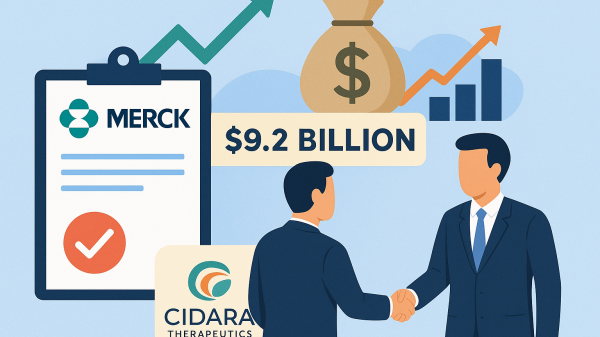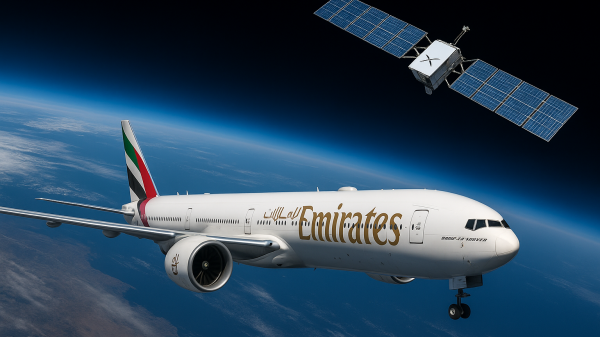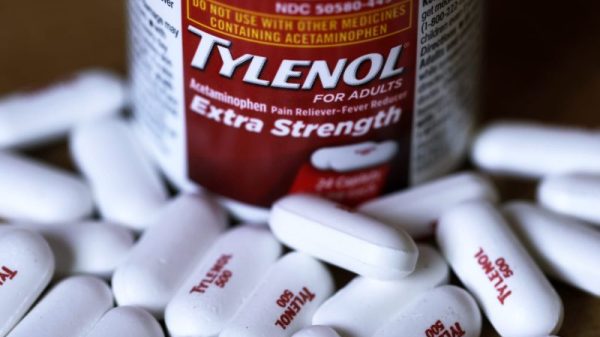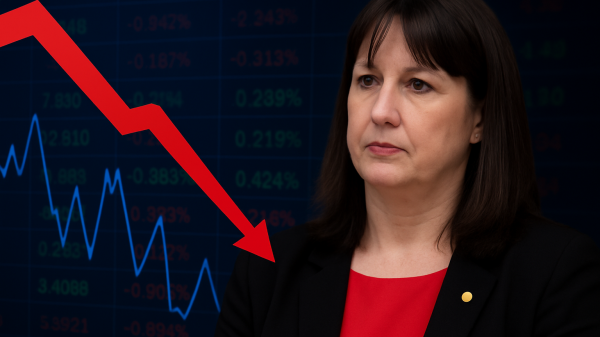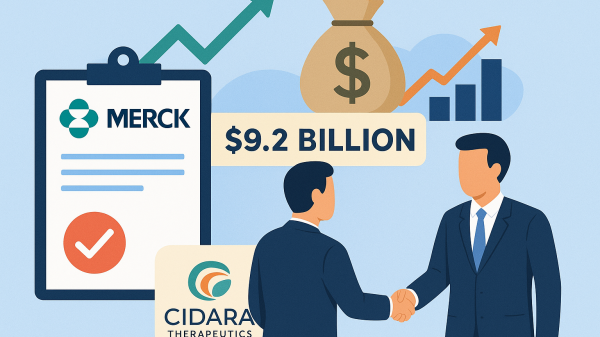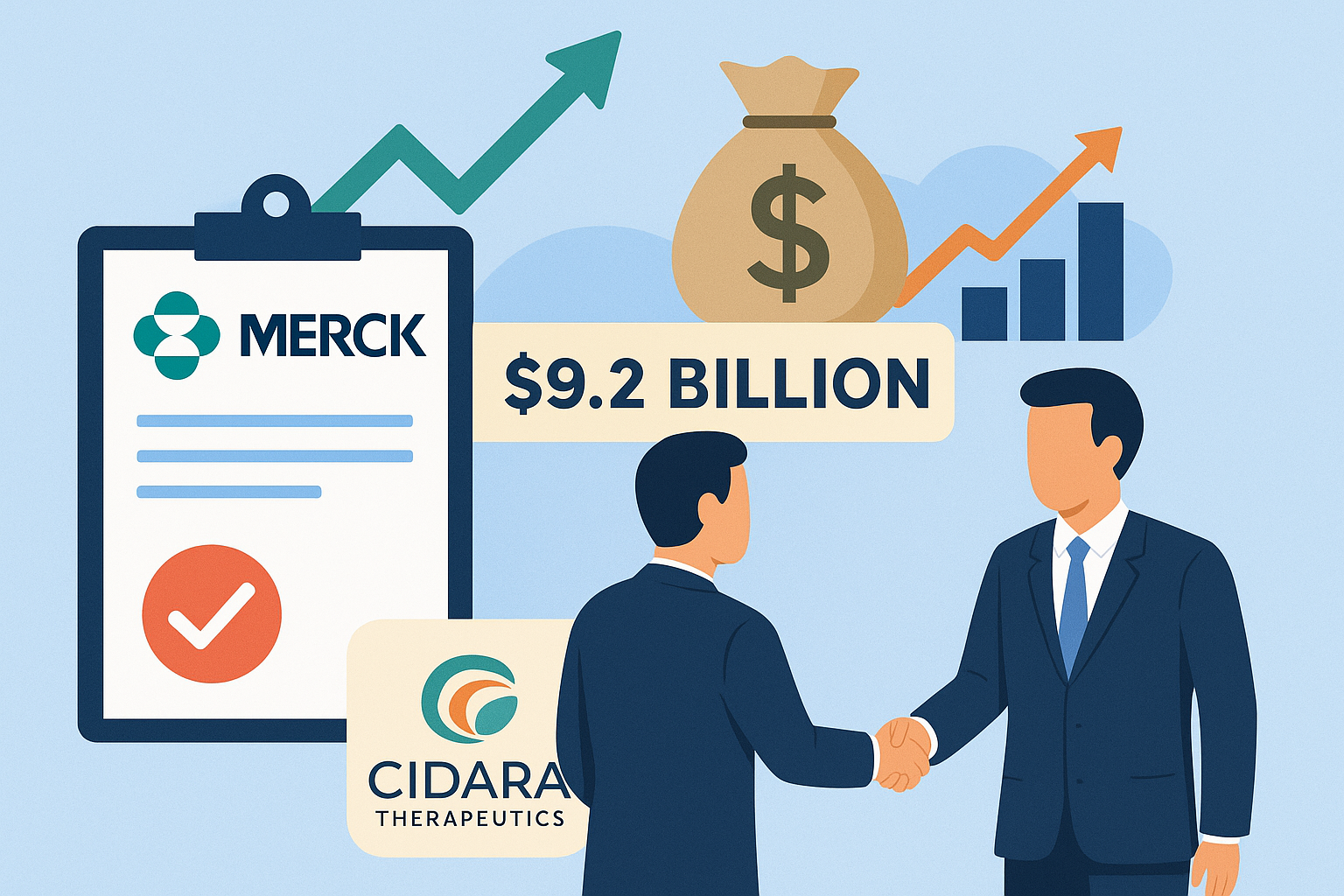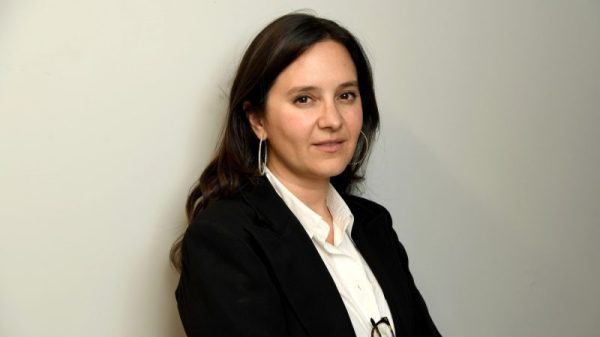Merck & Co. has agreed to acquire biotechnology firm Cidara Therapeutics in a $9.2 billion deal, accelerating efforts to broaden its respiratory portfolio as it prepares for the loss of exclusivity on its blockbuster cancer drug Keytruda later this decade.
Cidara’s shares more than doubled in premarket trading on Friday, jumping over 103% after Merck announced it would pay $221.50 per share—more than twice the company’s previous closing price of $105.99.
The deal, expected to close in the first quarter of 2026, underscores the urgency with which large pharmaceutical companies are moving to secure new sources of growth ahead of significant patent expiries.
Universal flu prevention therapy draws interest
At the centre of the acquisition is Cidara’s lead programme, CD388, a long-acting antiviral agent now in Phase 3 trials.
The treatment is being tested as a preventive therapy for influenza in people at high risk of severe illness.
The San Diego-based biotechnology company says CD388 may offer single-dose protection against all flu strains, a prospect that has drawn considerable industry attention.
Merck Chief Executive Rob Davis said the drug has “the potential to be another important driver of growth through the next decade,” adding that it could generate meaningful long-term value for shareholders.
The company has been expanding its pipeline aggressively since 2021, combining internal drug development with large acquisitions.
These include its $11.5 billion deal for Acceleron Pharmaceuticals, which added the pulmonary arterial hypertension therapy Winrevair, and the July acquisition of UK-based Verona Pharma for $10 billion, giving Merck the newly approved COPD treatment Ohtuvayre.
Competition intensifies as pharma M&A accelerates
Pharmaceutical dealmaking has accelerated this year as major drugmakers seek to replace revenue at risk from upcoming patent expiries.
Industry data from LSEG shows that global pharmaceutical and biotech mergers and acquisitions reached $105.3 billion by July, up 7% year-on-year and the highest total since 2023.
Rival bidders have also become more aggressive.
Danish drugmaker H. Lundbeck recently launched a bid of up to $2.25 billion for Avadel, threatening Alkermes’ existing agreement to acquire the company.
Meanwhile, Pfizer completed its takeover of weight-loss drug developer Metsera after a competitive bidding process with Novo Nordisk that pushed the potential valuation up more than 35%.
Davis has said Merck remains open to additional deals in the $15 billion range as it positions itself for the post-Keytruda era.
The therapy generated nearly $29.5 billion in sales last year, making it one of the world’s top-selling medicines.
Financial backdrop of both companies
Merck’s shares were down 1.28% in premarket trading on Friday following the acquisition announcement.
The company on Thursday reported third-quarter EBITDA of €1.67 billion, beating a Vara consensus estimate of €1.56 billion, and narrowed its full-year revenue outlook to between €20.8 billion and €21.4 billion.
Cidara last week reported a quarterly adjusted loss of $3.10 per share for the three months ending September 30, deeper than analyst expectations.
Despite the wider-than-expected loss, the company’s late-stage pipeline—as demonstrated by CD388—remains the primary driver behind Merck’s strategic interest.
The post Merck to buy Cidara Therapeutics for $9.2 billion as Keytruda patent cliff approaches appeared first on Invezz


